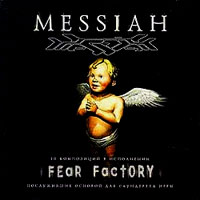This article needs additional citations for verification .(June 2025) |
| Messiah | ||||
|---|---|---|---|---|
 | ||||
| Greatest hits album by | ||||
| Released | 1999 | |||
| Genre | ||||
| Length | 44:54 | |||
| Label | Roadrunner | |||
| Fear Factory chronology | ||||
| ||||
Messiah is the first compilation album by American industrial metal band Fear Factory, released in 1999 by Roadrunner Records. It includes one song from Soul of a New Machine , six from Demanufacture , two from Remanufacture , and one bonus track from Obsolete . It is the soundtrack to the 2000 video game Messiah . [1]